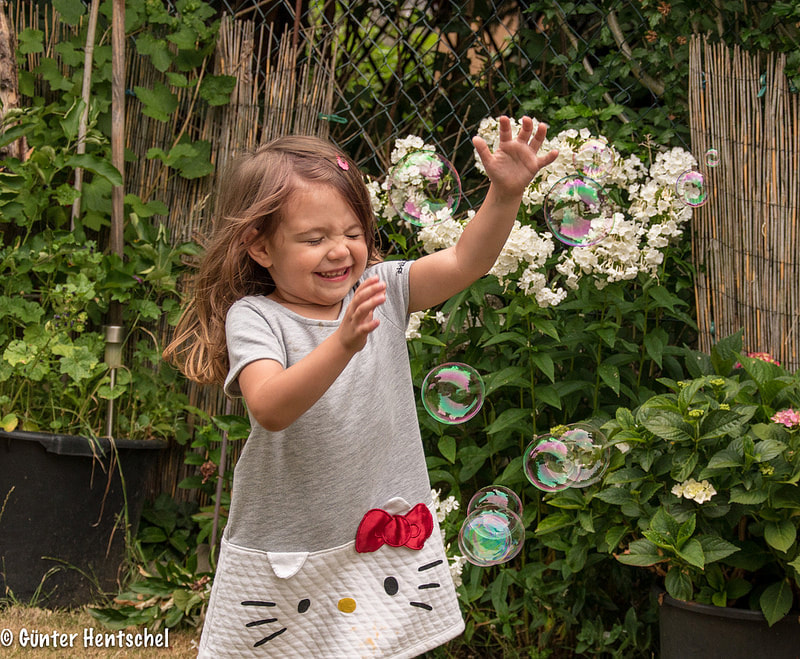|
Our eight year old son was visiting friends and apparently was spotted by Play Place Security blocking entry to a certain area of play. As was the procedure, he was taken to my adult son before he was asked to exit the play area. My adult son told his younger brother to go and apologize. A few minutes later, my oldest son was approached by the owner who said in her twenty-five years of working with kids, especially kids who had erred in judgment, our youngest son’s apology was the sincerest apology she has ever heard.
Apology is important. In fact, apology is the glue that holds all relationships together. Truly apologizing is an art. Each of us will have to sincerely apologize to someone a few times in our lives. We found that this four-step apology system works best. (We’ve had lots of use with our own kids) Step One: Acknowledge what you did. State your action or inaction. For instance, if a child snatched a toy he or she might say I should not have taken the toy from you. With your mates, you might say I should not have responded curtly to your request. The importance of this step is we do not make excuses for what we have done. We own the behavior. Step Two: State why the behavior was wrong. With a child she might say it was wrong because I should respect you as a person and not grab the toy from you. For our children, this helps them to understand the offenses and therefore the child is less likely to repeat the action. An adult might say my responses was wrong because I was not fully listening to your request. Instead, I was playing on my cell phone. The wronged individual then feels heard. This is an important step in reconciliation. Step Three: State what you will do differently in the future. A child might state. “In the future I will fill in the blank. A child might say in the future I will ask you can I play with the toy, even if I really want to play with it. I will find another toy rather than snatch a toy form you. An adult might say I will put down my phone and practice active listening, like the Carters suggested in their marriage seminar. Step Four: The individual asks the other person, if he would forgive him or her. This step is vital because the wronged person must forgive at this point and not revisit the transgression. Now, in cases of severe emotional or physical abuse, counselling coupled with prayer may be necessary. We often speak with couples where there has been infidelity and the wronged partner is continually brow beat for perceived unforgiveness. Sometime forgiveness is a process.
1 Comment
Many mothers tell me how frustrated they are because they get organized and then, after a while, they are right back to their disorganization. It is not enough to get organized, if we cannot stay organized. In fact, it just breeds more frustration and discouragement when we just cannot stay organized. Maintaining organization in our lives takes skill, tact, and determination. We need genuine change to occur. Change primarily takes place in the following steps. First, we become aware that we need to change. At this point, we may recognize the pain of our disorganization; it may be lost opportunities, unfulfilled relationships, or simply a lack of peace. Next, we acknowledge that we need to change. First we are honest with ourselves, and then we confess our fault to others. This is essential, because no one can change when she is in self-denial. Twelve-step programs hinge on this fact. All of us have heard the classic story of an alcoholic who thinks he or she can stop drinking at any time. The truth is that the alcohol controls the individual, and until the person faces this reality, he or she can never be truly free. No one can change until she admits a problem exists. It must be affirmed that you cannot heal a thing by saying it does not exist. After we have acknowledged that we need to change, we must engage a plan to change. Good intentions do not help us. Each of needs applied persistent action, or steps to take to reach our goal, so we prepare by having a realistic plan of action that is simple to implement. Complicated plans only frustrate us, and all plans should be birthed in prayer. The plan must also have follow-through and guide us into developing new habits. Likewise, accountability and reward are parts of any good plan. It may seem a bit clinical to say so, but the elements of preparation and planning are important if that decision is to be actualized. We start at the beginning. Addressing the roots of why we are disorganized will help us more than simply looking for another organizing or time-management technique. Many mothers embarrassingly confess that they are closet organizing-book junkies. They keep reading, thinking something will stick one day. They try new methods, but soon fall off the proverbial organizing horse. Then, in frustration, they buy another book, convinced that a new technique will help them get organized. This does not work. If we want to break out of the cycle from messy to organized, then we have to get at the root of why we fluctuate. We need perspective on why we cannot stay organized. Moses faced a similar dilemma. In Psalms 90:12, he prayed, “Teach us to number our days, so that we may gain a heart of wisdom…” The Hebrew prophet Moses penned these words at a time when the children of Israel were aimlessly circling the mountain in the wilderness. It probably seemed to them like their days had little significance. They saw the same thing every day. In the monotonousness of their days, I am sure they began to question whether their lives had meaning. They probably struggled with some of the same thoughts we face in the seemingly repetitive activity of our days. This scripture is noteworthy because it reflects a core belief in the heart of Moses, their leader. He longed for his life and the lives of his followers to have meaning. He knew the pain of aimless wandering, for he had already spent forty years in the desert, running from the will of God. After Moses accepted the call to be the deliverer of the Israelite people, his life took on new meaning. Moses wanted to make sure neither he nor any of the other Israelites ever missed out on the will of God again. Moses wanted to know he was doing the right thing at the right time. Wisdom is the result of time and activity producing a desired result. Essentially, that is what we all want for our lives. As we look at the scripture, it is noted the original word “number” in Hebrew is derived from the word manah, which means “to allot, enumerate, or organize.” Moses wanted to know how to organize his days to live a fulfilled life in the allotted time given him. He wanted to live out the measure of his days in activities and gratifying relationships, which God had ordained. Thus he would be fulfilled each day. Truly, our lives are composed of our days. Our life is the sum total of our days. It behooves us to live each day with purpose. Like Moses, we should say, “Teach me to organize my life, so that I can know to do the right thing at the right time.” Moses understood that wisdom begins in the way we successfully handle our daily lives. Wisdom’s results are profound, yet wisdom is revealed in the seeds of our daily decisions. Those who lead successful lives do so as the result of managing their days proficiently. Our daily lives should bring us closer to the realization of personal success. It all begins with a plan. The specific plan of God for your life is within you. It can be drawn out of you, like a fine sculptor can turn a lump of clay into a fabulous work of art. Only you hold your own chisel. You must find your own hidden treasure. You must find meaning and purpose for your life. It all begins with an appreciation of time. Moses understood that time is a self-contained entity. You cannot control the way it flows in or out. We cannot manage it like money, but we can manage ourselves—getting more out of the time that we do have available to us. We all have the capacity to live more purposefully. We merely have to look at those areas in our lives that keep us from getting organized and staying organized. Here are a few reasons why most of us don’t remain organized. We have not developed systems to keep us organized. People need systems to help them stay organized. Systems are a way to approach something. It can be something in our environment, or the way we spend our time. Systems help us, because we have something to fall back on. In essence, they are our security blankets, because we know what to do before events happen. Generally, when we are reading the mail, we don’t think about it, at least not at that moment. Instead, we just drop the mail someplace and later figure out what to do with the ensuing mess. The key to a successful system is that it must be individually tailored and easy to implement. It must take into account our human frailties and natural tendencies. We gravitate to the easy. This book is simplified so that you can easily adapt the systems to your life, so you will continually use them. We are not honest with ourselves. In order to stay organized, we must honestly look at our bad habits, and the systems we adapt must take into account those tendencies. For instance, if I have the tendency to throw my clothes on the bedroom floor, I might ask myself what the circumstances are that cause me to carelessly toss my garments. Am I tired, stressed, or just plain unmotivated? Sometimes it is a hard call. Whatever the case, I have to address the reason, then adapt a system that will help me with that behavior and motivate me not to engage in destructive behavior that keeps me from my goals. No one can do this for me. I must be honest with myself. Honesty is at the core of any significant change. If we deny our character flaws, we are doomed to forever repeat them. Someone once asked me if I had ever met just plain old lazy people who were destined to be disorganized. In my fourteen years as a professional organizer, I have rarely met lazy people. I have met overwhelmed, discouraged, stressed, and unmotivated people, but few lazy people. We moms tend to be really hard on ourselves. We have unrealistic expectations of ourselves. Most of us have fallen into the “supermom” syndrome, and we have very high standards and find it difficult to release ourselves from them. We have to recognize that our standards are just not realistic, and therefore unobtainable. I have never met a person, including myself, who was perfectly organized in every aspect of her life. We are unable to adapt to change. Change happens to all of us; it is the only constant in our lives. All of us are changing daily, and as we change, we adapt our systems and environments to reflect those changes. A mother with an active toddler who can get into everything must childproof her home in ways she never could have imagined when that child was a squirmy infant who liked to be held. Change is inevitable. We have to anticipate changes and adapt to them to keep ourselves organized. If you are the mom of a wiry toddler and insist on operating as you did when your child was an infant, you will only frustrate yourself. All organization strategies, like us, must evolve and change as the dynamics of our personal and family lives change. It is necessary to remember that changes in your lifestyle, no matter how slight, should trigger changes in the way you organize your environment or manage your home. We are under too much stress to change. Stress affects our productivity because it inhibits our ability to reason effectively and takes a toll on our bodies. Not surprisingly, doctors today report that many of our illnesses are self-inflicted through stress, poor diet, and unresolved conflicts. All of us live with some degree of stress in our lives; it is virtually unavoidable. However, we need to be aware when we are under stress and adjust ourselves accordingly. High stress quotients have been assigned to some things like having a baby, moving, starting a new job, and applying for credit. When we are engulfed in stress, we have to change our systems, or relax (perhaps alter) our standards so that we can still be effective. However, we moms tend to heap more guilt on ourselves and try to go on as we did before we became stressed. Once we recognize stress, then we are able to realistically determine our limits and organize ourselves around those limits. Once, when we were going through major renovations on our home, I realized that my meal-management system had to be altered, because I did not have time or space for meal preparation. I adapted to a different meal plan, instead of beating myself up about not being able to cook like I used to before renovations had begun. I wish I could say I always approach problems like this. Unfortunately, I do not. I am learning to ask myself, when things totally fall apart, if I am just too stressed. We do not have an accountability partner. It’s funny: we have accountability groups for almost every problem today except organization. That’s a shame, because most of us just need a bit of motivation to clean up our acts, so to speak. After all, the last time you had company, you probably cleaned your house from top to bottom. The embarrassment or pride (whichever you choose) motivated you to get the job done, no matter how tired you may have been. Women in particular erroneously find their identities in their homes, and thus find it difficult to let others know about their struggles to keep a clean house. Even those brave souls who do admit they need help will still often gravitate to others like themselves. A pact with a friend can be a real catalyst for getting organized and staying organized. In my workshops, I encourage moms to become one another’s accountability partners. I have found that friends who attend my workshops together are most likely to keep up their newfound organizational skills. Friends help to encourage us, and occasionally spur us with a bit of good-humored competition. Accountability can be pint-sized too; even my kids have kept me accountable. We engage in self-defeating talk. What we say to ourselves really matters. We speak to ourselves at the rate of about one thousand and five hundred words per minute. Of course, we are able to articulate at far less speed. It is the things we say to ourselves unconsciously that we have to be aware of. In Proverbs, it states that as a man thinks, so is he (Prov. 23:7, KJV). In other words, you believe whatever you habitually say to yourself. This is not surprising. Social scientists have long told us that if we say something often enough, we began to believe it. Thus it is what we say to ourselves—particularly those things we say habitually or unawares—that we need to be concerned about. Sometimes we say things like, “I’ll never be organized. I was born this way.” Or we say, “Other people can change, but not me.” This kind of unfruitful conversation seals your doom, because it likewise produces a vision of failure in your organizing efforts. You see yourself as a failure, and then you fail, because your own words have produced an image of impossibility for you. Therefore, you need positive affirmations of your success, despite your past failures. We do not recognize the bumps in the road. I suppose there is a more accurate psychological term for this, but I cannot think of a more adequate way to describe this phenomenon. It occurs when we ignore the obvious and do not adapt to compensate for the inevitable. For instance, perhaps you notice that when you are tired, you tend to toss your dirty clothes on the floor. You can leave them there on the floor, or you can compensate for your tiredness by having a place to put your clothes when you are tired. It is like seeing the bumps in the road. You slow down, so as not to damage your car. We all need to recognize the weakness in our characters or schedules, and adapt accordingly. We are just not practical enough. As a recovering “messy,” I think this is where I still have my challenges: trying to fit into someone else’s plan. Years ago, I got hold of an organization book in which the author suggested purchasing index cards and writing all your household tasks on them. First of all, I was not even aware of what household chores I was supposed to be doing in my home. It took me considerable time to figure out what I was supposed to be doing, but the clincher was that I lost the cards. It was someone else’s system, and it did not work for me. This is the biggest reason why most people buy organizing books. They are always trying to use someone else’s systems, instead of using them as springboards to develop personalized systems. While I will offer you many ideas, remember to use my ideas as a launching pad for your own personal system. We are caught in the blame game. When we think our problems are other people’s fault, we look for them to change. We make ourselves victims, and immobilize ourselves with this thinking. Many moms come to my workshop and tell me their problems are entirely their husband’s fault, or that of the kids, or the old dog…well, you get the picture. You cannot change other people. You can motivate them to change. You can invite them to change. You can even beg them to change, but the only person you can change is yourself. So if you get caught in thinking “it’s the kids fault” or “it’s my husbands’ fault,” it keeps you from looking at yourself so you can change. We have an impossible picture in view. While a perfectly ordered house may be desirable, it might not be possible if you have three preschoolers, are home-schooling, and are running a home business. Therefore, you have to relax your standards and adapt to those things you can order. Sometimes we are so idealistic that we do not see reality. Once I got a frantic call from a client whose office desk, as she described it, was organized chaos. I prepared for the worst. When I got there, I discovered the desk was actually very orderly. It was just that she was working for a busy counseling agency that had received a large influx of clients. In fact, she was ministering to the needs of the callers by giving them encouragement and time; she was even keeping accurate correspondence logs. As I saw it, there was little she could do beyond what she had already done, given the scope of her job. Nonetheless, she had an idealistic picture in mind that was frustrating her. We forget organizing should be relational. The main reason I see mothers failing to stay organized is because they do not realize their jobs are more relational. It is easy to handle papers, numbers, and stuff, but our kids don’t come in neat little packages to be organized. Children are messy, unpredictable, and illogical. This is not taken into account in most time-management and organizing books or programs. We neglect this obvious fact ourselves at times. One client once told me she was constantly annoyed by some of the work-at-home magazines she saw that showed angelic toddlers sitting on their mothers’ laps while they typed. Her children were reckless, she confessed. They banged on her keyboard, rolled on the floor (to get her attention), and wanted her to read them “The Cat in the Hat” at least five times a day. As we talked, she realized that she had not been spending enough time with them, and she hadn’t established boundaries that toddlers could understand. Toddlers understand literal physical barriers and concrete, measurable time frames. I suggested using a timer that they could look at, and scheduling reading times. She also set up a play office for them. It was simple; once she had accepted that toddlers vie for attention, she was able to spend time with them, and adapt her schedule so that they everyone was happier. We are not hurting enough. I purposely saved this one, but it is the harshest concept to accept. Sometimes our disorganization gnaws at us, but it is not bothersome enough for us to really change. We read a book or take a class but make no effort to change because it is not a major issue in our lives. Some people take my classes who really don’t want to be there. They were urged to do so by concerned spouses, parents, friends, or children, but they really have no vested interest in getting organized, because it really is not a major issue to them. It is like the story about the farmer and the old hound dog who is sitting on the porch howling in pain. A neighbor passes by and asks why the dog is howling. Obviously, he is in pain. The farmer replies that he is sitting on an old nail. “Why doesn’t he get up?” asks the neighbor. “I guess it does not hurt enough yet,” remarks the farmer. Our disorganization has to hurt us enough to make us really want to change, so that we will do anything to resolve the issue. Perhaps your past efforts to get organized have discouraged you. Once, we were supposed to move out of our home, and it was to be demolished. I found it difficult to motivate myself to clean or organize my home, because I knew it was coming down. In addition, repairs were badly needed throughout the house, but since we knew we were moving, we had neglected them too. Needless to say, the environment was very discouraging. Every day the situation got worse. In addition, the contractor delayed the project for over a year, and I was partially packed, based on his ever-deceptive time frames. It was the worst time for our family, and I had to learn to live in chaos. One day, I realized I had been adapting to chaos and hopelessness. I resolved to clean and organize the house, even if it meant the house would not be showcase-perfect. After the house was organized, my mindset changed; I became more positive. Our environment really does affect us. Are You Struggling to Pray Together?
Over the years, we have scheduled prayer time, relied on spontaneous prayer and been urged into our prayer closets by circumstances. For us, with our busy schedules and Derek’s unpredictable work schedule, the only way we have found to be consistent in prayer is to use a journal at times. Derek resisted the idea for a time. He reasoned he did not want to write his innermost thoughts: he preferred his prayers to be spontaneous. However, the process of writing and recording prayers has proven to be a faith builder. A journal of answered prayer is priceless. Rather personal in nature, we do not share its contents with others. The process has managed to keep us grounded in the process. If your husband works long hours, or has an unpredictable schedule , you might want to try a couple prayer journal. It is simple: First: Write down the prayer request in simple terms. We have found when a prayer request is too long, we rarely read through it together. We would rather be consistent than perfect. Second: Add scriptures to the request. We have found that praying the scriptures together to be quite powerful. Third: We generally pray together in one another’s physical presence, but on days when Derek works late, and I retire early, (it occasionally happens), the requests in the prayer journal can still be prayed for daily. Fourth: Once the prayer is answered we put the date it was answered and continue praying for the other requests. This simple method has kept us fairly consistent in praying together, We welcome your suggestions. Derek and Cheryl Carter enjoy teaching couples about the process of relational forgiveness, genuine apology and practical communication through the ministry Foundations for Family Success (FamilySuccess.org). They are still working on their book Communication Keys and are in the process of practicing relational forgiveness as the date for release of their book keeps being delayed due to the challenges of writing together. Visit www. FamilySuccess.org to get a free copy of their marriage communication e-book.  Listening is a vital life skill that should be taught early. In fact more of us would benefit from developing our listening skills more. The first step is to be able to repeat the speaker’s words with a degree of understanding. They should not merely parrot words of others but demonstrate some reflective thought about what has been said.. Active listening to parents, peers and siblings helps them communicate on a deep level that will likewise transfer over to their communication with the Lord. In a nutshell, active listening involves listening to the speaker and reflecting back to them their thoughts and feelings to make sure you have understanding. You’ll have to model this a few times to children. Example: Joey: You were late picking me up from baseball. I was the last kid there. Mom: It must have been pretty scary being all by yourself. Joey: Yeah. I thought you would never come. Mom: I’ll try harder to be on time next time. I’ll ask Jesus to help me. Do you think you can ask Jesus anything, Joey? Joey: Yes. I can pray when I am alone; after all, Coach Roberts was right there, too. Let’s notice some steps this mom took. She did not invalidate Joey’s feelings by telling him Coach Roberts was there nor by explaining away her lateness. She acknowledges his feelings and does not react to his agitation. Being an adult means taking the high road and not expecting our children to make us feel good about our choices. This mom also turns the child back to Jesus and gets him to reason on his own. Since he feels validated, he is eventually able to reason he really was not alone. Coach Roberts was right there. Children tend to aggrandize everything, and had Joey not acknowledged Coach Roberts, his distorted view of reality would become common place. This mom also had to be at a place of peace where she does not react to Joey’s accusation. A soft answer turns away wrath. Later, mom could talk to Joey about how to speak to someone even in crisis. Children should be taught respect even when they are upset, but children, like us, first need to be validated before corrected. Practice active listening. It is imperative to show empathy with children when listening. Children still have an element of fantasy in their thoughts, and you can use that to show you want the best for your child, even when you cannot give it. Listen without the temptation to give one of those lectures that often go in one ear and out the other. Do you remember any childhood lectures? I don’t. I do remember how I felt and how angry my parents were. Only by listening and getting to the heart of the issue will you be sure to strike a chord with your child. Children need to be emotionally secure before we can tell them about the love of God. Children need attention. Stop. Look at your child in the eye. Touch them. Even when our children seem to push us away, we need to cuddle them. Our sons might not appreciate a hug, but we can rustle their hair, give approving touches along with words of affirmation. Our actions and emotions must match. We cannot tell our children we love them and at the same time be on the telephone when they come in from school. Children remember things emotionally. Our children also need affirmation, approval, affection, and a sense of belonging. Children learn most by what we do. We have an intentional plan for our children. It is primarily our responsibility to nurture a love of God in our children so that they hunger after God.  It happened again today. We were coming home from church and I was relaying a story to Derek when suddenly, I couldn’t remember a parishioner’s name—and not just any parishioner-- but a woman I had counseled just two months ago. As we pulled into JFK airport, the woman’s first and last name came barreling to my brain faster than a Black Friday shopper in the aisle with the last 70 percent off flat screen tv. Of course, I know the reason the name came back to me so quickly was because I was relaxed and not thinking about it. But, I’ll be honest with you: it bothers me more than I care to admit. I pride myself on my impeccable memory and often I can quote (generally correctly) long passages from almost any book I have read. Further, it bugs me because I refuse to accept a momentarily lapse of memory is normal and to be expected. It is not like I am in denial though, like when I plucked out my first grey hair with the idealist hope that another one would not grow in its place. Don’t worry, this is not another blog on aging. In fact, I don’t feel old. Friends and foes alike, tell me I don’t look my age. Of course, it bothers me a bit when folks say I don’t look my age when they don’t know my age. But, that’s another story. Nearly, everyone has trouble remembering something at least once in their lives. Most times, we will just employ some mnemonic to deal with it and move on. However, when working with the elderly, whom need to recall details of a story for their legacy life book, it gets a bit trickier. I have found asking open-ended questions, along with associations, helps with memory recall. For instance, I used to say, when conducting an interview, tell me about your elementary school. Now, I ask, what was the favorite part of the playground at your elementary school? Knowing that many of our childhood memories stem from play helps me to refocus the question to illicit a better response. Of course, I will deviant from one way of questioning at any time to get a richer interview. In fact, one of my secrets for getting such rich detail is the way I interview. Asking the right questions will illicit the right response. Not surprising, research has shown that when recalling old memories association works best. I will spare you the scientific details. Suffice to say, if you are able to recall a small detail, such as a slide in the playground, you will likely be able to recall the memory-at- large. Dementia clients are perhaps the hardest to work with because at times their associations don’t fit in with present day reality. Still, even early Alzheimer patients can give meaningful interviews, once you help them make connections. I once saw an 80-year-old gentleman’s face light up as I employed associative questioning to get him to recall nearly a neighbor.s house when he was in grade school. I simply focused on the Lionel train he told me he used to play with his neighbors. Someone once said our memories are our personal movies. It is, therefore, essential that we hold onto our memories—no matter how old we are. This can be easily done if we relax and take the time to make associations. Thus, had I recalled a simple detail of the counseling session, I might have remembered the parishioners’ name sooner. Instead, it was likely me relaxing that allowed my subconscious to retrieve the name. However, when simply relaxing does not seem to work with elderly relatives, try associations and details. Like the slide or the Lionel train, find a small detail to focus on that will illicit an emotional response that will trigger memories. Triggering memories is important at any age. The ramblings we tolerate today may well be the wisdom we need tomorrow. Let's cultivate our memories. Cheryl Carter is the CEO of Legacy Treasures. She composes legacy life books, ethical wills and tribute books for her clients. She has recently developed a do-it-yourself legacy kit for individuals to capture the meaningful moments of their loved ones’ lives. Visit themeaningfulmoment.com for further information.
|
Archives
February 2019
Categories |




 RSS Feed
RSS Feed
